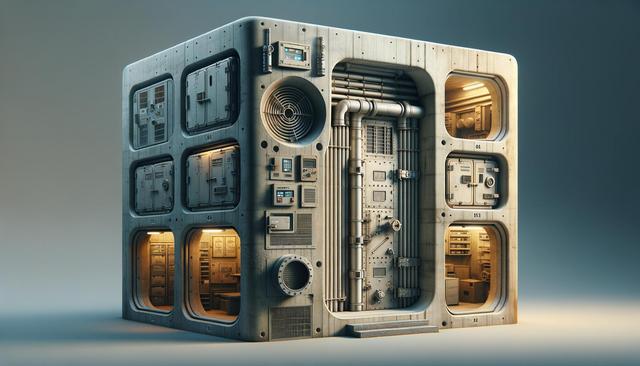Be Prepared: How to Select a Top-Rated Tornado Shelter for Your Family

Why Storm Shelters Are a Crucial Investment
Severe weather events like tornadoes and hurricanes pose real threats to homes and families across many regions. For those living in tornado-prone or coastal areas, storm shelters offer a dependable layer of protection when minutes matter most. These shelters are designed to withstand extreme wind forces, flying debris, and pressure changes, providing a safe space during weather emergencies. The importance of having a tornado or hurricane shelter cannot be overstated, especially as weather patterns become more unpredictable.
Storm shelters come in several forms including in-ground, above-ground, and modular units. Each type is built to meet specific safety standards and can be installed in homes, garages, or even in the backyard. When you search for a “storm shelter near me,” you are likely to find a variety of options that cater to different needs and property layouts. Investing in a reliable shelter brings peace of mind, knowing your family has a designated safe space during dangerous weather conditions.
Types of Tornado and Hurricane Shelters
Selecting the right shelter starts with understanding the available types and their unique benefits. The most common storm shelters include:
- In-ground shelters: Installed beneath the surface, often in garages or yards. These are known for exceptional protection against flying debris.
- Above-ground shelters: Installed inside homes or garages, offering easy access and compliance with FEMA guidelines.
- Community shelters: Larger structures designed to protect multiple families or neighborhoods.
Each option has its pros and cons depending on your budget, available space, and specific regional risks. For instance, hurricane shelters are often reinforced to withstand prolonged exposure to wind and water, while tornado shelters focus on rapid accessibility and resistance to sudden impact. When evaluating options, consider the shelter’s capacity, ventilation, and accessibility for elderly family members or those with mobility issues.
Factors to Consider When Choosing a Shelter
Choosing among various tornado shelters involves more than just picking a model. Several critical factors should guide your decision:
- Location: Will the shelter be installed indoors or outdoors? Accessibility during an emergency is key.
- Certification: Ensure the shelter meets FEMA and ICC-500 standards for structural integrity and safety.
- Material: Shelters are typically made from steel, concrete, or fiberglass. Each material has its own durability and maintenance considerations.
- Size: Consider how many people the shelter needs to accommodate, as well as space for emergency supplies.
It’s also important to consider installation logistics. If you’re searching for a “storm shelter near me,” be sure to ask providers about site evaluations and customization options. Some companies offer turn-key solutions, handling everything from permitting to final inspection. This can streamline the process and ensure the shelter is compliant with local building codes.
Understanding Tornado Shelter Cost
One of the most common questions homeowners have is about tornado shelter cost. Prices can vary significantly based on size, material, type, and installation requirements. On average, a basic in-ground shelter might start around a few thousand dollars, while larger, above-ground or community shelters can cost significantly more. Here are a few cost factors to keep in mind:
- Type of shelter: In-ground models are generally less expensive than above-ground steel units.
- Installation: Excavation and foundation work can add to the overall expense.
- Customization: Adding features such as ventilation systems, benches, or storage will increase the cost.
- Permits and inspections: Local regulations may require additional fees for compliance.
Despite the initial investment, many homeowners view shelters as a valuable addition to their property. In some cases, insurance companies may offer discounts for having a certified shelter. Additionally, some regions provide grants or financing assistance to help offset tornado shelter costs, especially in high-risk areas.
Finding a Storm Shelter Near You
Once you’ve decided to invest in a shelter, the next step is finding a reputable provider. A quick online search for “storm shelter near me” will bring up local installers and dealers with varying specialties. It’s important to research customer reviews, verify certifications, and request quotes from multiple vendors. Ask about warranty options, maintenance services, and response times for installation.
Working with a local provider has several advantages. They are familiar with regional building codes, weather risks, and common installation challenges. Many also offer site visits to assess the best placement for your shelter. Whether you’re interested in tornado shelters or hurricane shelters, choosing a local expert can make the process smoother and more reliable.
Don’t hesitate to ask questions about materials, safety ratings, and past installations. A reputable company will be transparent and eager to help you make an informed decision. Keep in mind that this is a long-term investment in your family’s safety, so thorough research is well worth the effort.
Conclusion: Prioritizing Safety for Peace of Mind
Storm shelters are a practical and often necessary addition for families living in areas prone to extreme weather. From tornadoes to hurricanes, having a secure place to shelter in place can mean the difference between life and tragedy. By understanding the various types of shelters, evaluating your needs, and considering tornado shelter cost, you can make a well-informed decision that prioritizes your family’s safety.
Whether you’re searching for a “storm shelter near me” or exploring options for hurricane shelters, taking the time to choose a highly rated, certified product ensures you’re prepared for whatever nature brings. Investing in a shelter is not just about protection—it’s about peace of mind when you need it most.
